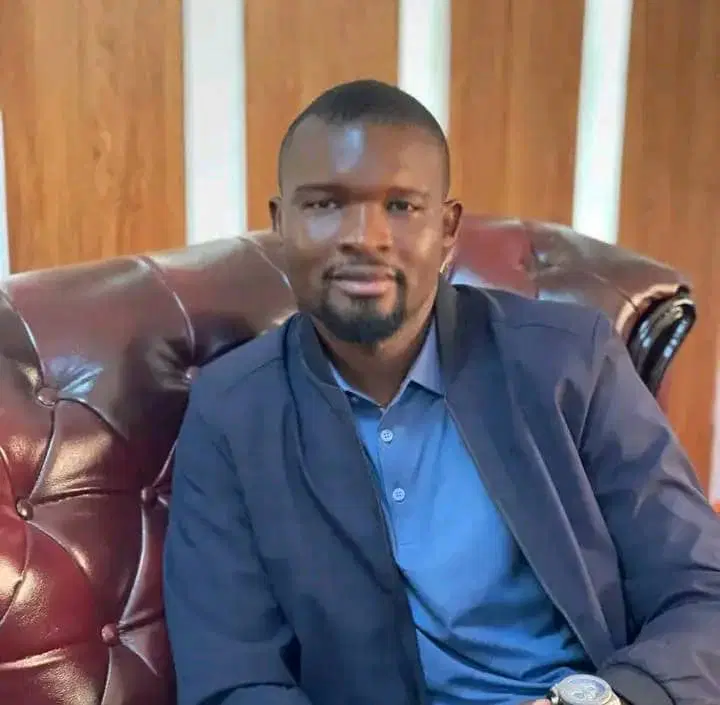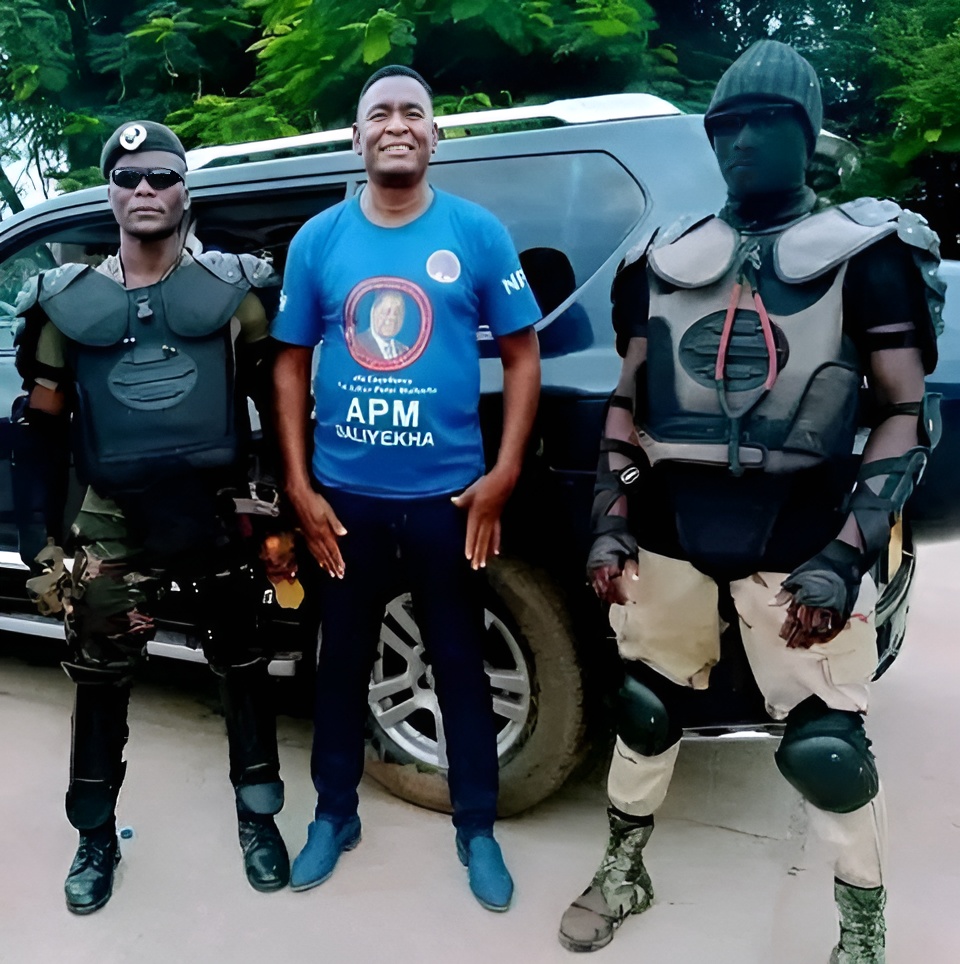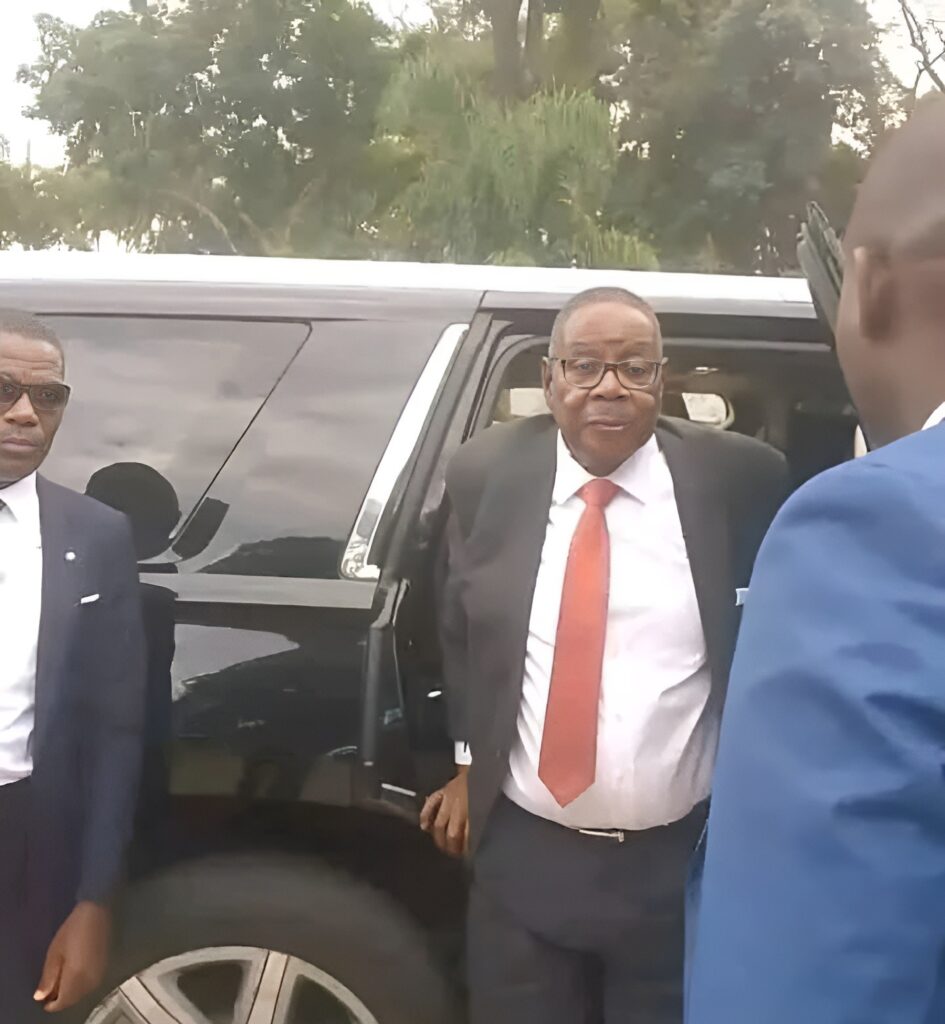In a searing speech delivered during a recent Democratic Progressive Party (DPP) meeting for central region executive committee, Vice President Alfred Gangata made explosive claims that have exposed widening cracks within the party’s hierarchy.
Speaking candidly, Gangata accused the party’s southern-region leadership of isolating and financially abandoning the central region, even as elections loom just two months away.
Gangata who is the party’s Vice President for the region, warned that if the DPP continues on a path of division and internal sabotage, “it will not win the upcoming elections.”
He lamented that he alone has been funding all DPP activities in the central region without support from the party.
“DPP was dead in the Central Region. I revived it. I built these structures. And now I’m spending my own money for all the activities in the region. Where is the support from our national leadership?” Gangata asked, visibly agitated.

Gangata reminded the committee of 2020 when Kondwani Nankhumwa, then the DPP Vice President for the southern region warned President Arthur Peter Mutharika of losing the 2020 elections because of rampant backbiting and greed among the party top officials.
“And indeed in 2020 we lost the elections. This is what I see happening this September,” he added.
He said most senior members who are working against him are relying on their long relationship with Mutharika but warned that “relationships do not win elections.”
Gangata’s remarks pull the curtain back on deep-rooted regional tensions within the DPP, primarily between the central region loyalists and the party’s southern-region power base.

Ironically, it is the central region, through the Norman “Pythius Hiwa” Chisale’s Ntcheu Cabal which continues to dominate top decision-making while the southern region has remained quite watching the party’s recent chaotic trajectory from afar.
Gangata accused party operatives from the south of undermining the efforts of the central region, despite the crucial electoral weight it carries. In his own words, “there is a fight between us in the central region and those in the south. They want to reap where they didn’t sow.”
He said it was surprising that people in the party are jostling for positions and other potential benefits before even winning the elections. In his own words “kuyamba kugawana nyama asanamphe.”
The remarks underscore what sources within the party have long whispered: a toxic mix of tribalism, greed, and factionalism is tearing the DPP apart from within.
Some within the party leadership, particularly the so-called Ntcheu Cabal, led Chisale and comprising of Gertrude Mutharika, Peter Mukhito and Gangata himself, have allegedly been working to sideline more independent-minded figures while attempting to elevate the central region Vice President politically in the hope that he will be handed the running mate during the September elections.
In the video, Gangata repeatedly emphasized that the DPP machinery has abandoned him, even as he mobilized supporters, funded logistics, and re-established party structures in a region which has been long neglected by the DPP.
He says: “I’m the one paying for transportation. I’m the one paying for food. I’m the one calling meetings and printing campaign materials. How can a national party operate like this, expecting one person to do everything?”
His rhetoric paints a picture of a man frustrated and betrayed, working in a vacuum while the party’s senior figures, particularly in the south, allegedly hoard resources and sabotage those they see as threats to their influence.

What is becoming increasingly clear is that the DPP’s internal leadership crisis goes beyond mere financial disorganization. It is a full-blown civil war over the party’s soul, one that pits merit and regional balance against tribal entrenchment and illiteracy-fueled cronyism.
Critics argue that the DPP, once a ruling party with a near-monopoly on power, is now gripped by factions led by individuals with no ideological grounding or academic credibility.
At the heart of this degeneration are figures like Gangata, Chisale and others with controversial academic records and criminal charges.
Despite these stains, this group has managed to seize control of key levers of the party, raising alarm among long-standing members who fear that the DPP has become a breeding ground for corruption, violence, and lawlessness rather than a credible government-in-waiting.
Observers say Gangata’s meeting served less as a show of unity and more as a desperate cry for help, or perhaps a warning shot to those within the DPP who continue to dismiss the central region as insignificant.
“This is not just about money. This is about regional relevance, respect, and control. Gangata is saying: ‘I’ve made the DPP matter again in this region, and if you want to win, you need me,” said one political analyst.
But as his influence rises, so does the opposition within the party.
Many senior and better-educated DPP figures are reportedly uneasy with Gangata’s proximity to the party’s top ticket, especially the rumors that he is being positioned to run as Mutharika’s running mate.
“This is a man with no verifiable academic record, facing certificate fraud charges. And yet he’s calling the shots while those of us who built this party from scratch are being sidelined,” a senior DPP official, speaking off the record, told this reporter.
With APM’s health reportedly deteriorating and his leadership increasingly remote and uninspiring, questions abound as to whether he is even capable of reining in the chaos within his own party.
If the Ntcheu Cabal continues to push figures like Gangata forward while alienating DPP technocrats and long-time organizers, the party risks entering the 2025 elections as a fractured, disorganized mess, a shadow of its former self.
Some within the party are calling for an emergency convention to reset the leadership, while others are urging Mutharika to retire and allow a fresh slate of leaders to emerge.
But unless these internal fires are extinguished soon, the DPP risks going into the elections not as a challenger to the ruling Malawi Congress Party, but as its own worst enemy.








